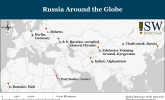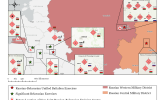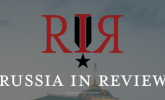Russian Military Movements Unlikely Preparing for Imminent Offensive against Ukraine but Still Concerning
November 2, 2021 - ISW Press
Movements and activities of elements of Russia’s 41st Combined Arms Army (CAA) and 1st Guards Tank Army in late October are unlikely to be preparations for an offensive against Ukraine, but do pose longer-term challenges to Russia’s neighbors and NATO. The Washington Post reported on October 30 that a “buildup” of Russian troops near the Ukrainian border concerned US and European officials. The report suggested that the Russian deployments are similar to those carried out on Ukraine’s border in March-April 2021. Open-source reporting does not support the assessment that Russia has moved any additional forces closer to the Ukrainian border or that a Russian offensive against Ukraine is imminent, however. The Ukrainian Ministry of Defense stated on November 1 it has not observed any transfers of Russian units, weapons, or equipment to the Ukrainian border.






